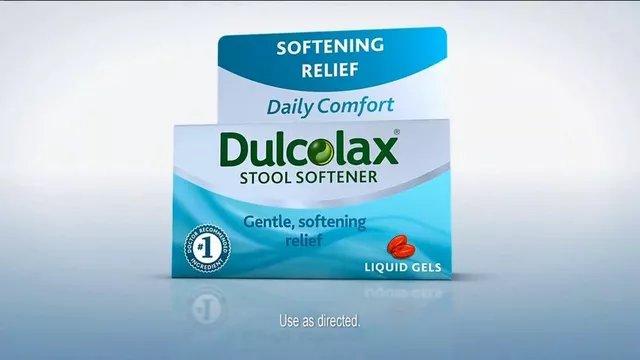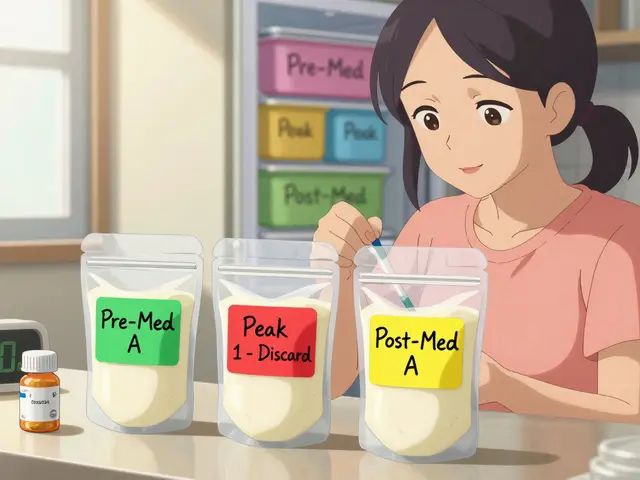Living with lupus can feel like walking a tightrope-one side is the physical flare‑ups, the other is the emotional roller coaster, and somewhere in the middle is your love life. Whether you have Discoid Lupus Erythematosus (a skin‑focused form) or Systemic Lupus Erythematosus (the whole‑body version), the disease doesn’t stay locked inside your body; it leaks into conversations, bedroom habits, and daily routines.
What’s the difference? A quick comparison
| Aspect | Discoid Lupus Erythematosus | Systemic Lupus Erythematosus |
|---|---|---|
| Primary organ involvement | Skin lesions, scarring | Skin, joints, kidneys, heart, brain |
| Typical symptoms | Red plaques, photosensitivity | Fatigue, joint pain, fever, organ inflammation |
| Common intimacy challenges | Self‑image concerns, pain from lesions | Extreme fatigue, chronic pain, mood swings |
| Emotional toll | Feelings of embarrassment, isolation | Depression, anxiety, fear of flares |
| Typical coping tools | Sun protection, skin‑care routines | Medication management, pacing activities |
Physical symptoms that echo in the bedroom
Both forms of lupus can bring pain, but the way it shows up matters. Skin lesions on the chest, abdomen, or genitals can make touch feel like an irritant rather than a pleasure. Joint inflammation often targets the hips, knees, and shoulders-areas you need for many intimate positions. Fatigue, a hallmark of systemic lupus, can shorten the window of desire and leave you feeling drained after just a few minutes of activity.
- Skin sensitivity: Sun‑exposed areas become tender, so bold lighting or heated rooms might trigger flare‑ups.
- Joint stiffness: Morning stiffness can linger into the night, limiting movement.
- Dryness and vaginal irritation: Autoimmune‑related dryness can affect lubrication, making sex uncomfortable.
Understanding the exact trigger lets you and your partner adjust-think silicone‑based lubricants, pillows for support, or a low‑light environment that won’t aggravate photosensitivity.
Emotional ripples: How lupus reshapes intimacy
Beyond the physical, lupus bends the emotional landscape. The unpredictable nature of flares creates a constant undercurrent of anxiety: “What if I’m too sick tomorrow? What if my medication makes me less interested?” Depression and anxiety rates are higher in lupus patients, and that directly dampens libido.
Self‑image also takes a hit. Discoid lesions can leave permanent scarring, turning skin that once felt like a source of confidence into a source of shame. When you start seeing yourself in the mirror, you might wonder whether you’re still “attractive” to your partner.
The good news? Open communication can turn these fears into shared challenges rather than secret burdens.

Communication: The cornerstone of a resilient partnership
Couples who talk about symptoms, limits, and preferences report higher satisfaction. Here’s a simple three‑step conversation starter you can try:
- Label the feeling: “I feel exhausted after my morning medication, and I’m worried it will affect our plans tonight.”
- Explain the impact: “When my joints are stiff, I can’t move as freely, which makes certain positions uncomfortable.”
- Invite collaboration: “Can we try a pillow‑supported position or schedule intimate time when my energy is higher?”
Notice the focus on "I" statements and concrete needs. This format keeps blame out of the equation and invites problem‑solving.
Practical tips for keeping intimacy alive
- Schedule intimacy like any other medication-choose days when fatigue is low and flares are minimal. \n
- Adapt the environment: Keep the room cool, use soft lighting, and have a humidifier if dry air worsens skin irritation.
- Use assistive tools: Vibrators, lubricants, and ergonomic pillows can reduce strain on painful joints.
- Embrace non‑sexual closeness: Cuddling, massage, or simply holding hands maintains the bond without triggering pain.
- Mind‑body practices: Gentle yoga or tai chi improves flexibility and can lessen joint stiffness, which translates into more comfort later on.

When professional help makes a difference
Sometimes the best way forward is to bring in an expert. Here are three professionals who often play a role in lupus‑related relationship issues:
- Rheumatologist: Manages medication to keep flares in check, which indirectly protects intimacy.
- Sex therapist: Offers strategies for pain‑free sexual activity and helps address anxiety around performance.
- Couples counselor: Guides partners through communication roadblocks and builds a shared coping plan.
Don’t wait until a crisis hits; schedule a check‑in when things feel relatively stable. Early intervention prevents patterns from solidifying.
Key takeaways
- Lupus isn’t just a medical condition-it’s a relationship factor that needs open dialogue.
- Physical symptoms (skin lesions, joint pain, fatigue) have direct impacts on intimacy; adapt your environment and techniques.
- Emotional health (self‑image, depression) often dictates desire; address it with counseling and supportive partners.
- Practical tools-lubricants, pillows, scheduling-can turn a flare‑prone night into a rewarding experience.
- Professional support from rheumatologists, sex therapists, and couples counselors can keep the love life thriving.
Frequently Asked Questions
Can lupus medication affect libido?
Yes. Steroids can increase desire temporarily, while some immunosuppressants cause fatigue or mood swings that lower libido. Talk to your rheumatologist about dosage timing or alternative drugs if sexual side‑effects become problematic.
Is it safe to have sex during a flare?
Safety depends on flare severity. Mild skin irritation may be manageable with gentle touch and protection, but severe joint pain or organ involvement (like kidney inflammation) warrants rest. Always listen to your body and avoid positions that exacerbate pain.
How can partners support someone with lupus?
Support looks like respecting energy limits, helping with household duties during flares, and keeping the conversation about intimacy non‑judgmental. Simple gestures-bringing a warm compress for joint pain or planning a low‑key movie night-show empathy without pressuring.
Do lifestyle changes improve intimacy for lupus patients?
Absolutely. Regular low‑impact exercise improves joint flexibility, a balanced diet reduces inflammation, and adequate sleep boosts energy levels-all of which translate into better sexual stamina and confidence.
What resources are available for couples dealing with lupus?
The Lupus Foundation of America offers support groups for patients and partners. Many hospitals have multidisciplinary clinics that include psychological counseling. Online forums like r/Lupus on Reddit also provide peer‑to‑peer advice on intimacy issues.












Celeste Flynn
October 23, 2025 AT 15:08 PMLiving with lupus doesn’t have to mean giving up intimacy. Try scheduling moments when you feel most energetic, like after your morning meds, and let your partner know the window you’re aiming for. Simple props such as a firm pillow or a heated blanket can take pressure off sore joints and keep skin lesions from rubbing. Using silicone‑based lubes helps with dryness and can make touch feel nicer without irritating sensitive skin. Open, low‑key chat about what feels good and what doesn’t keeps both of you in the loop.
Shan Reddy
October 31, 2025 AT 02:08 AMI’ve found that keeping a symptom diary can be a game changer for couples. When you note which activities trigger flare‑ups, you both get a clearer picture of limits. It also gives the rheumatologist concrete data to adjust treatment. Sharing this info over a calm coffee can turn a stressful topic into a collaborative plan. The key is to stay factual and avoid blame.
CASEY PERRY
November 7, 2025 AT 14:08 PMSystemic lupus erythematosus frequently manifests as chronic fatigue syndrome intertwined with arthralgia, which directly impairs sexual stamina. Photo‑sensitivity exacerbates cutaneous lesions, reducing tactile receptivity in exposed dermal regions. Optimizing immunosuppressive regimens to achieve low disease activity scores can mitigate these sequelae. Adjunctive use of topical emollients and intra‑articular corticosteroids may further preserve functional intimacy.
Naomi Shimberg
November 15, 2025 AT 02:08 AMWhile symptom diaries are touted as neutral tools, they often serve to objectify lived experience, reducing personal narratives to data points. One might argue that this quantification subtly shifts agency from the patient to the clinician, thereby undermining relational intimacy. Moreover, the act of chronicling can reinforce an illness identity that overshadows the partner’s perspective. It is prudent to question whether such records truly foster collaboration or merely perpetuate a clinical hierarchy.
kenny lastimosa
November 22, 2025 AT 14:08 PMReflecting on the interplay between illness and love invites a deeper meditation on the nature of selfhood. When lupus intrudes upon the body, it also nudges the psyche toward an awareness of impermanence. This awareness can either fracture the bond with a partner or, conversely, become a crucible for shared resilience. The crucial variable lies not in the disease itself but in the narrative each partner constructs around it. If the story is framed as an antagonistic invader, the relationship may adopt a defensive stance, bordering on resignation. Yet, if the narrative acknowledges vulnerability as a facet of humanity, it opens space for compassion.
Consider the concept of mutual reciprocity: both participants must grant and receive support, not merely as caretakers but as equals navigating uncertainty. The act of scheduling intimacy, for instance, transforms a spontaneous gesture into a pact of intentionality, reinforcing trust. Similarly, employing adaptive tools-pillows, lubricants, gentle lighting-signifies a pragmatic devotion that respects bodily limits.
From a philosophical lens, the body can be seen as a vessel whose capacity fluctuates, while the soul’s desire for connection remains steadfast. Embracing this duality allows partners to separate the transient from the essential. In doing so, they cultivate a relational ethic that honors both the fragility and the durability of love. Ultimately, lupus may alter the mechanics of intimacy, but it need not diminish its meaning. Thus, couples can rewrite the script of intimacy on their own terms.
Peter Richmond
November 30, 2025 AT 02:08 AMYour suggestions are practical and evidence‑based, especially the emphasis on environmental adjustments. In my experience, a brief mindfulness routine before intimacy can also lower perceived pain. Encouraging partners to practice deep breathing together creates a shared rhythm that eases tension. When both parties view these steps as mutual investment, the relationship benefits beyond the bedroom.
Jinny Shin
December 7, 2025 AT 14:08 PMOne might romanticize the notion of a “shared rhythm,” yet the reality is often fraught with silent grievances. The theatricality of a candle‑lit setting can mask underlying discomfort, leaving the afflicted to perform a masque of composure. Nevertheless, a discreet pillow or a silk sheet can become symbols of dignity amidst the clinical. In the quiet of a restrained whisper, the couple may find a fleeting sanctuary.
deepak tanwar
December 15, 2025 AT 02:08 AMIt is intriguing that the emphasis on pharmacologic modulation overlooks the sociocultural dimensions of intimacy. By focusing solely on disease activity scores, we risk neglecting the lived narratives that shape sexual identity. A broader therapeutic lens should incorporate cultural competence alongside biomedical targets.
Abhishek Kumar
December 22, 2025 AT 14:08 PMShortcuts rarely solve complex health issues.
hema khatri
December 30, 2025 AT 02:08 AMWow what a profound reflection! It really hits home!! The idea of rewriting intimacy scripts is so empowering!!! Embracing vulnerability while using practical tools shows true strength!!! Keep sharing these insights, they uplift many!!
Jennell Vandermolen
January 6, 2026 AT 14:08 PMSupporting each other through flare cycles can feel like a marathon, not a sprint. Celebrate small victories, like a pain‑free evening or a comforting hug, and acknowledge the effort both partners put in. Gentle reminders that it’s okay to pause and rest can prevent burnout. By keeping communication steady and respectful, the bond stays resilient.
Mike Peuerböck
January 14, 2026 AT 02:08 AMYour counsel encapsulates the essence of reciprocal care with eloquent precision. Indeed, the tapestry of partnership is woven from threads of empathy, patience, and shared aspiration. When couples adopt a lexicon of encouragement rather than criticism, the relational climate flourishes. Consequently, even amidst the vicissitudes of lupus, love can endure with renewed vigor.
Simon Waters
January 21, 2026 AT 14:08 PMSome people think the meds are just for the sickness but they might also be used to control how you feel. It’s worth thinking about who benefits when the drug companies set the rules for intimacy.